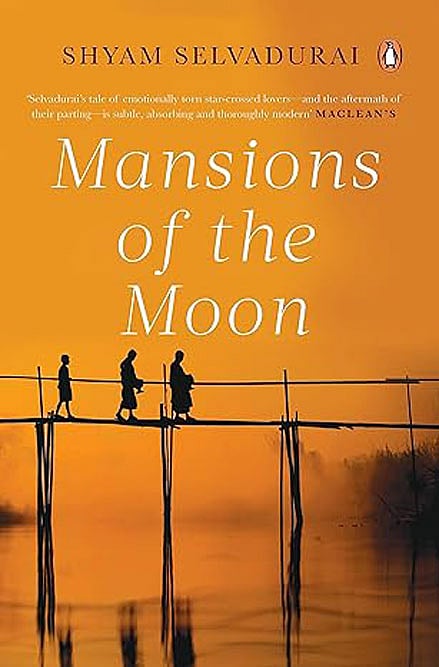Star-crossed Lovers

The story of how prince Siddhartha became the Buddha has been a fount of inspiration for seekers over centuries. Yet, it also brings up some vexing questions. Why did he leave behind his wife Yasodhara and son Rahula when he set out to pursue his spiritual calling? Did he ever regret that decision? How did they cope with his absence? Did they ever forgive him?
Sri Lankan-Canadian novelist Shyam Selvadurai wrestles with these questions in his new book Mansions of the Moon, a historical novel of epic proportions that pits Yasodhara’s dreams of conjugal bliss against Siddhartha’s burning quest for an end to his restlessness.
The novelist makes an earnest effort to step into Yasodhara’s shoes, and reconstruct the socio-political milieu that shapes her choices. She lives in a world where the only women who enjoy financial independence are courtesans. Her fortunes are linked to the men in her life—her father, husband, and son. She rages against these constraints, and grows bitter over time.
Selvadurai evokes sympathy for Yasodhara in the reader’s heart, but Siddhartha does not come off as a villain either because he acknowledges the drastic impact of his actions on his wife and son. Siddhartha does not deliver a long spiel on how he made a choice for the greater good. After renouncing his possessions, the only inheritance that he can give Rahula—who is raised by Yasodhara to loathe his father—is the dhamma, so Siddhartha readily accepts Rahula into the Buddhist monastic order. Yasodhara, however, has to fight in order to become a nun.
Imran Khan: Pakistan’s Prisoner
27 Feb 2026 - Vol 04 | Issue 60
The descent and despair of Imran Khan
This is where Selvadurai departs from the historical, literary, religious and mythological source materials that he has cited in the introduction. In this novel, Siddhartha’s stepmother Mahaprajapati, who is traditionally celebrated for being the first woman to approach Siddhartha to allow women to join the monastic order, is joined by Yasodhara.
Apart from writing a novel set during the Buddha’s lifetime, Selvadurai wanted to “imitate how the old stories had incorporated the tenets of Buddhism into their narrative structures,” so Yasodhara is a personification of moha or delusion, which is one of the three poisons discussed in Buddhist literature. The other two are raga or clinging, and dvesha or aversion.
Through the character of Yasodhara, Selvadurai shows how human beings create suffering for themselves and others by expecting a stable and permanent reality. They fear loss. When their efforts to keep things from changing fail miserably, their anger turns into hatred. Here, the author draws heavily from Ranjini Obeyesekere’s translations of Sinhala Buddhist texts.
The author seems adept at writing characters with shades of grey. They are neither completely endearing nor wholly despicable. Any uncritical claiming of Yasodhara as a feminist character, for instance, is impossible. While she pushes the envelope in terms of what women are allowed to do in her society, she also believes that Siddhartha pretends to be a harbinger of peace because he is not man enough to be a Kshatriya warrior like her brother Devadatta.
In the introduction, Selvadurai also writes movingly about his own struggle with allowing Buddhist teachings into his life after his family fled to Canada. The Buddhism that he discovered at a temple in Toronto, and from books by Karen Armstrong, Bhikkhu Nanamoli, Richard Gombrich and others, felt too different from what he saw growing up in Sri Lanka.
He uses several Pali words, which transport the reader to another place and time. It is easy to guess their meaning from the context but there is an exhaustive glossary at the end of the book for additional support. Selvadurai’s research is commendable, but his excessive reliance on Buddhist sources makes his portrayal of ascetics from non-Buddhist traditions—Niganthas and Ajivikas—appear flat. He makes up for this lack with other memorable characters such as Rupasiri, Ananda, Anuruddha, Dandapani, Pamita, and Nagamunda.

